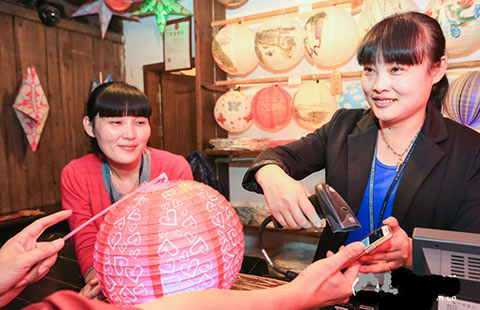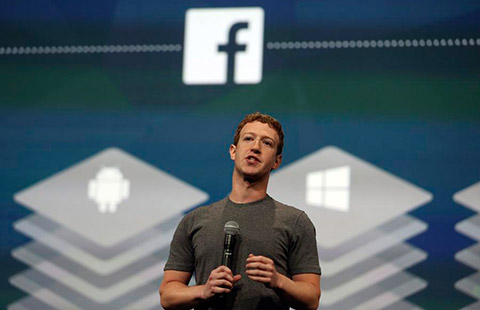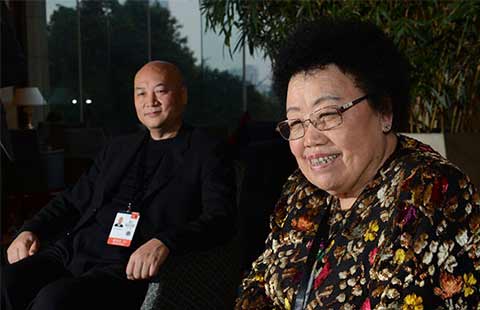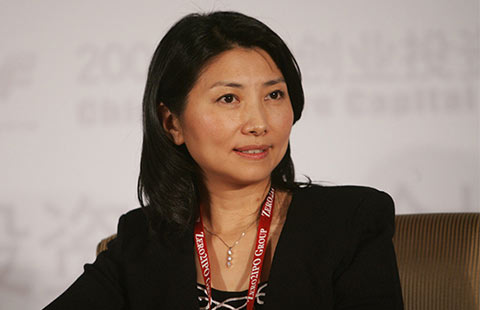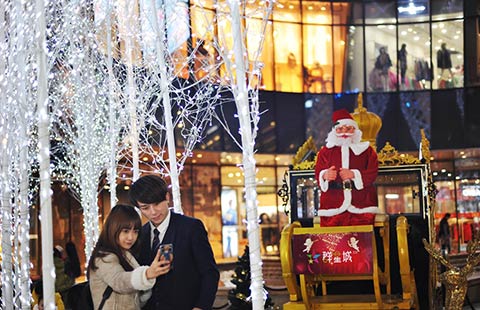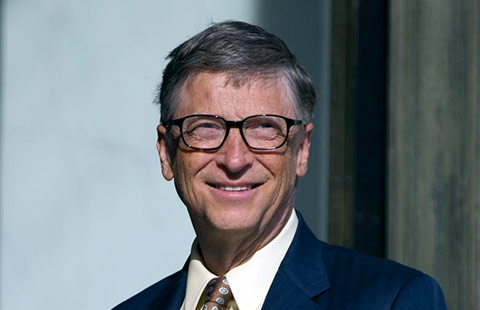Retailers' delight at Double 12 discounts
By Meng Jing (China Daily) Updated: 2015-12-14 07:32
More than 300,000 businesses in and outside China participated the Double 12 shopping festival, including restaurants, supermarkets, convenience stores and cinemas, according to Alipay.[Photo/IC]
Online payment companies help to give offline stores a sales boost
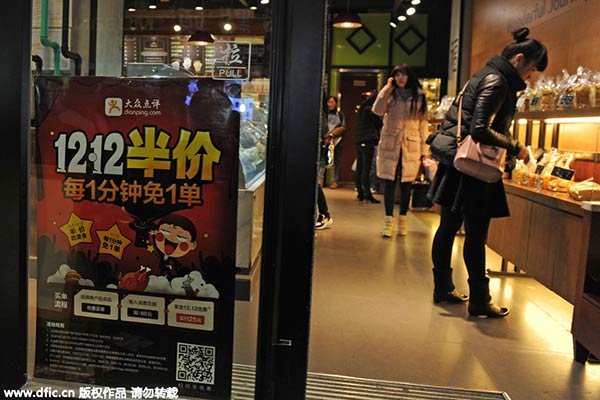
Chinese e-commerce companies have done it again. Hot on the heels of Singles Day, the Nov 11 shopping fest that this year saw Alibaba alone rake in 91.2 billion yuan ($14.1 billion) in sales in just 24 hours, another event on Saturday again had tills ringing.
Yet rather than boosting sales for online retailers, this time the magic worked for brick-and-mortar businesses.
Alipay, the third-party online payment company, said about 28 million consumers had taken part in Saturday's Double 12 shopping promotion, during which up to 50 percent discounts were offered on selected items to encourage people to pay using their smartphones when buying offline.
More than 300,000 businesses in and outside China participated, including restaurants, supermarkets, convenience stores and cinemas, according to Alipay, which is operated by Alibaba's finance affiliate, Ant Financial.
"The Double 12 shopping festival has officially become a signature event that integrates Internet technology with offline businesses," Alipay said in a statement on Sunday.
Supermarkets and cinemas have seen a surge in custom thanks in part to Alipay, as well as domestic rivals Baidu Wallet, which is run by Chinese search engine Baidu, and Tencent's WeChat payment platform, which have all attempted to attract mobile users by providing incentives such as discounts and e-coupons.
Double 12, so called because it falls on the 12th day of the 12th month, was initiated by Alibaba's Taobao website in 2012 as an online sales event.
Lu Zhenwang, CEO of Wanqing Consultancy in Shanghai, said the event shows that online businesses are not the archenemy of brick-and-mortar stores. "With innovation, they can be a perfect match," he said.
Nearly 80 percent of Alipay users who participated in the event were born in the 1980s or 1990s, the company said, adding that attractive discounts had also led to many older consumers to try mobile payment technology for the first time. The company said nearly 1 million participants on Saturday were aged over 50, accounting for 3.5 percent of all customers.
Guo Cuiling, 55, who paid for her shopping at a supermarket in Beijing using Alipay for the first time on Saturday, said she was charged only 76 yuan for purchases that had originally totaled 126 yuan.
"Paying via a smartphone is much more convenient than I'd thought," she said. "They simply wiped the QR code on my smartphone and it was done. You don't need to reach for your purse or worry about small change any more."
Carrefour China said transactions made via Alipay exceeded 100 million yuan by 5:30 pm on Saturday. "Shoppers at some of our stores doubled on Dec 12," said marketing director Yu Ying.
"Mobile payment improves the efficiency at the cashier desks by cutting the average payment time from 1 minute per customer to 15 seconds."
- Going heavy is good for AVIC
- Law firms seek to boost Belt and Road
- Budget airlines turning faster, cheaper in China
- App designers look for Christmas cheer
- Growth hopes rise on key indicators
- Retailers' delight at Double 12 discounts
- Liquidity woes loom over A shares
- Santa's workshop in Yiwu goes electric
